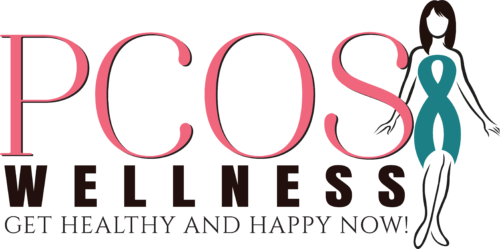
4 Ways that PCOS Can Take a Toll On Your Femininity (And What You Can Do To Feel Like a Woman Again)
PCOS and Femininity
PCOS and Femininity
Polycystic Ovary Syndrome (PCOS) is an endocrine disorder that affects up to 10% of women and is the main cause of female infertility. But if you’re here, reading this post, maybe you already know that!
Although there have been significant gains in public awareness and strides toward a deeper understanding of the syndrome, PCOS is still a relatively obscure condition with no known cure and no definitive causes. What is known, however, is that it can prove to be incredibly challenging, frustrating, and be agonizing for women who experience it.
I certainly support continued medical research on this disorder. However, I’d like to approach this discussion in a way that includes not only the physical impact that PCOS has on a woman, but the emotional impact as well. Because the nature of PCOS is that it affects a woman’s hormones (specifically and most notably, her ability to reproduce), it makes sense that it has the ability to wreak havoc on her sense of womanhood in general.
Although we thankfully live in an age and culture in which a woman can define herself in almost any way she chooses, there are still certain aspects of womanhood that seem universal.
Here are some ways that PCOS can take a toll on femininity:
Infertility
This is one of the most well-known symptoms of PCOS. An overproduction/imbalance of androgens causes women with PCOS to ovulate irregularly or not at all. This can lead to inconsistent menstrual periods and difficulty in becoming pregnant. To say this can lead to tremendous distress for women who want children is an understatement. Infertility contributes to body shame, questioning your worth as a person, and exacerbation of the emotional anguish of a woman or couple thwarted in their desire to create or expand their family. Eighty-one percent of women ultimately become mothers; it can be heartbreaking to miss out on that for reasons beyond your control.
Weight Gain
Ah, the dreaded weight gain. Twenty pounds in 20 minutes is what it feels like sometimes! I’ve got it, and so do two-thirds of other women with PCOS. Many people struggle with occasional weight issues, but the weight gain experienced by those with PCOS is something more drastic than just a natural slowdown of the metabolism, or a side effect of over-indulgence. There are close ties between PCOS and Type 2 diabetes, with the commonality being insulin resistance. Women with PCOS are more likely to develop diabetes. And did you know that having diabetes may be a precursor to developing PCOS? Significant weight gain is usually a factor in both conditions.
A resistance to insulin means that starches and sugars aren’t properly digested and can accumulate in the bloodstream, ultimately leading to accumulating pounds and inches, among other issues. While many women struggle with letting go of their pre-baby body or the physique they once enjoyed, the often large and sudden weight gain experienced by those with PCOS can be all the more devastating, particularly if you are not able to have children.
Not everyone wants to be rail thin, but gaining a substantial amount of weight can cause a woman to feel unattractive and undesirable. And there’s that nagging issue of all the health problems associated with excess weight to top it off. A collective cultural abhorrence of fat, coupled with acceptance of fat-shaming behavior and comments, adds to the mental distress.
Hair Problems
For centuries, body hair has played an important role in cultural ideals concerning gender. For women, it seems that we want hair where we want it, and we don’t where we don’t!
Polycystic Ovary Syndrome often includes the symptom of hirsutism, or excessive female body hair, particularly in places where it does not typically grow. You may be disgusted to find dark hair growing on your face, arms, chest, abdomen, or back. This is once again due to the surplus of androgen hormones.
Additionally, some women with PCOS experience the opposite of too much hair: hair loss (like male pattern baldness). Emotionally, it can be devastating to discover patches of hair missing from your head, and there can be a lot of fear and anxiety when you see clumps of hair going down the drain or loading up your brush. Hair is supposed to be our “crowning glory,” and it’s hard to feel like a princess when you’ve got bald spots.
Low Sex Drive
What woman doesn’t want to enjoy a healthy and satisfying sexual relationship? However, even being adored or desired by your partner isn’t necessarily enough. Unfortunately, the hormonal imbalance caused by PCOS can make you feel less than fully eager. Women usually feel sexiest right around the time of ovulation, and if ovulation isn’t happening, your sex life might not be happening either. Low libido may also be attributed to PCOS affecting your body in other ways. You may not feel sexually confident because of feelings of depression, excess weight, increased body hair, etc.
Not to be a downer, but PCOS can really do a number for your self-confidence as a woman (as if we don’t already have enough to worry about!). So what can be done? Are we supposed to just hang our heads and cry, resigned to a life of misery? In a word, no.
Tears may be part of the grief process for sure, but take it from someone who knows: you do not have to be miserable, and you do not have to let PCOS rob you of your joy.
There’s no magic solution for making yourself feel better, and your heartbreak certainly won’t be solved overnight from something you gleaned from a single blog post. But allowing yourself to feel what you feel, reading and educating yourself about your condition, and finding a community of support are great ways to start.
One of the things that many women who learn to effectively manage PCOS must learn is how to readjust their expectations.
Nutrition can play a huge part in helping with weight control, and different types of hormone therapy and lifestyle changes can help with fertility and hair growth.
For example, if you’ve done some research and decide that you want to go ahead and give waxing a try to tame your lady beard, go for it, but please don’t think that a single beauty procedure is going to make you happy.
It may give you a little boost, but remember that true joy comes from the inside (which is precisely the reason that I’ve chosen to focus on the mental health aspect of living with PCOS).
Keep learning, keep reading, and keep moving forward with hope. I am here for you.
What picks you up when you’re feeling unfeminine? How do you practice self-love? Leave a comment or shoot me a message at drgretchen@pcoswellness.com.
Session expired
Please log in again. The login page will open in a new tab. After logging in you can close it and return to this page.
